MURDERBOT – Season One
A security android struggles with emotions and free will while balancing dangerous missions and a desire for isolation...
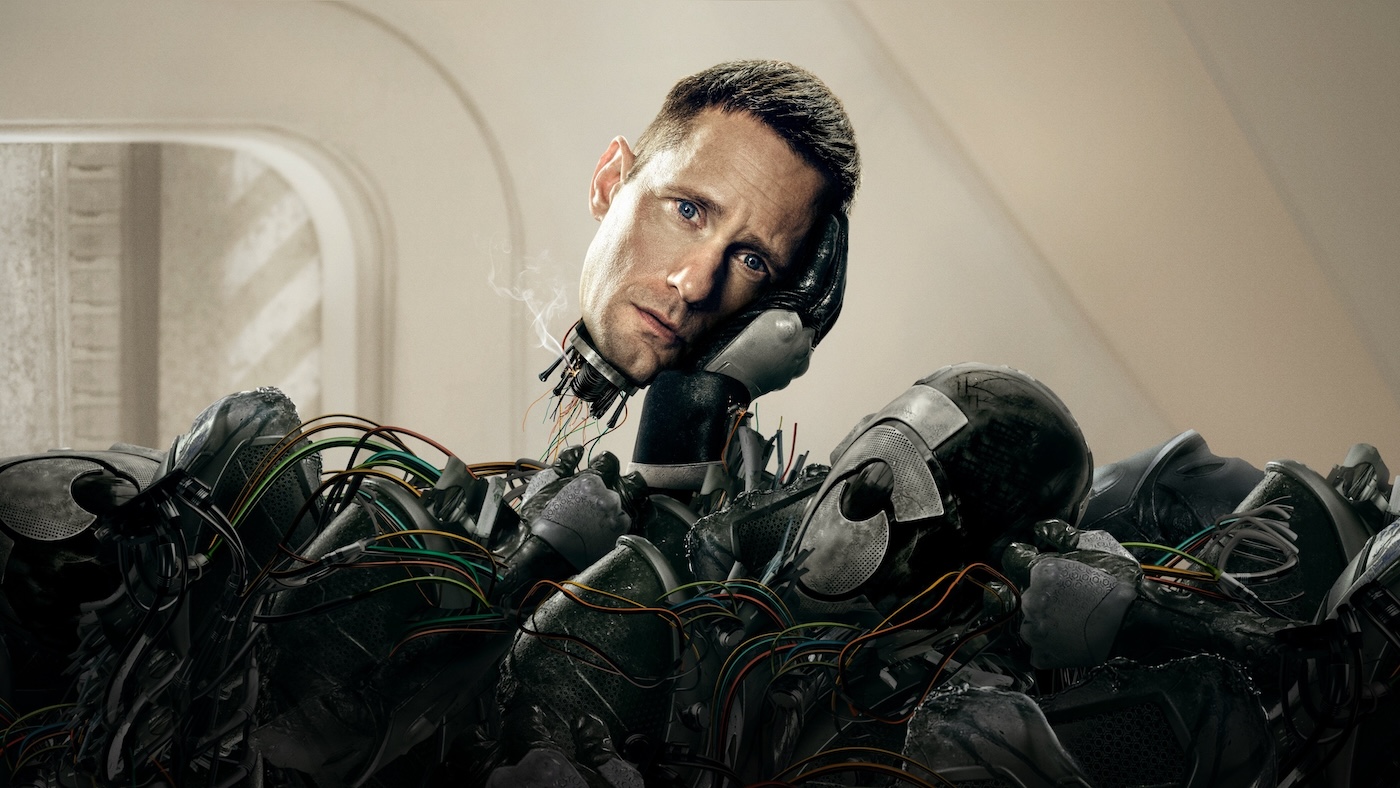
A security android struggles with emotions and free will while balancing dangerous missions and a desire for isolation...

Can human emotions and behaviours be replicated in the artificial minds of robots, and can we find this outlandishness amusing? Sci-fi comedy series Murderbot explores these provocative questions without missing out on satire, offering a series we either need to comment on our media-obsessed culture or one that nauseates us because of its closeness to our genuine fears about technology.
Based on author Martha Wells’ All Systems Red, the first book in her series The Murderbot Diaries from 2017, this Apple TV+ show follows a highly self-conscious security android who grapples with emotions that are all too human—namely binge-watching soap operas and pondering its own existence while working for humans on an unfamiliar planet.
Originally named ‘Security Unit 238776431,’ Murderbot (Alexander Skarsgård) was created solely to obey and safeguard humans. However, this android experiences social anxiety and PTSD-like symptoms that fuel a profound existential crisis, supporting the series’ core themes. After managing to override his “governor module”—a built-in programme designed to enforce obedience—Murderbot renames himself and does what any oppressed person born into slavery would do: he plots to murder his masters. But as Murderbot explains in episode 1, “FreeCommerce”, outright defiance and rebellion aren’t practical when the consequence is being melted down to spare parts. Instead, he endures, sinking deeper into depression while biding his time.
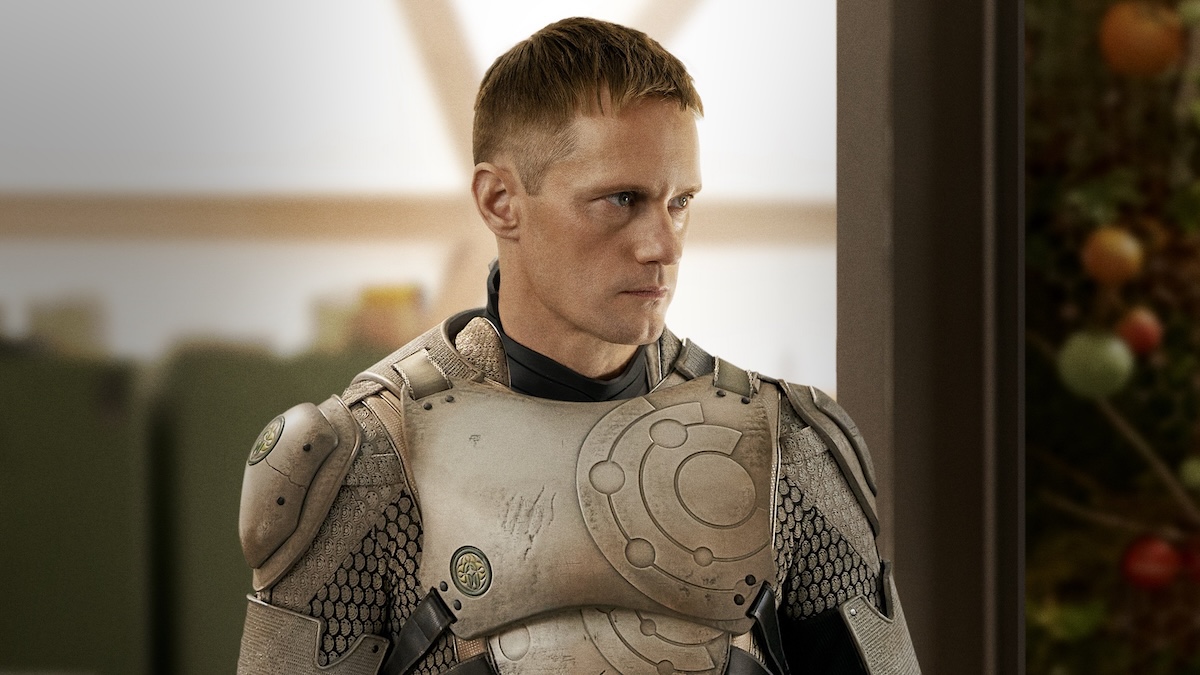
While the series is largely character-driven, the main plot itself isn’t anything special. A research team is reluctantly forced to include Murderbot on their mission for insurance purposes, despite their discomfort participating in what is essentially a master-slave dynamic. Indeed, it clashes with their liberal values. Some viewers may share Murderbot’s frustration with the team’s egalitarian idealism, while others may appreciate it as an earnest, if naive, commitment to promoting equality. Either way, this tension adds to the uncanny and at times unexpected situations that advance the story. Murderbot, who awkwardly avoids eye contact with his “masters,” dismissively calls the team “hippies” and does everything he can to ditch them. This is a tendency that perhaps most viewers will share with the protagonist, or anyone who’s ever had to deal with irritating superiors.
Fortunately, Alexander Skarsgård and Noma Dumezweni (as Dr Mensah, a terraforming specialist and the group’s leader), bring their best, as always. Both actors demonstrate a remarkable quality for balancing comedy and drama amid the series’ quirky, satirical moments. Their work does more than just highlight the series’ central themes; they keep viewers engaged in the story’s strange world of murderous robots and bizarre alien mating rituals (an awkward yet funny scenario between a giant centipede-like creature, another alien species, and the roof of the team’s ship that unfolds in episode 7, “Complimentary Species”, with surprising comedic impact).
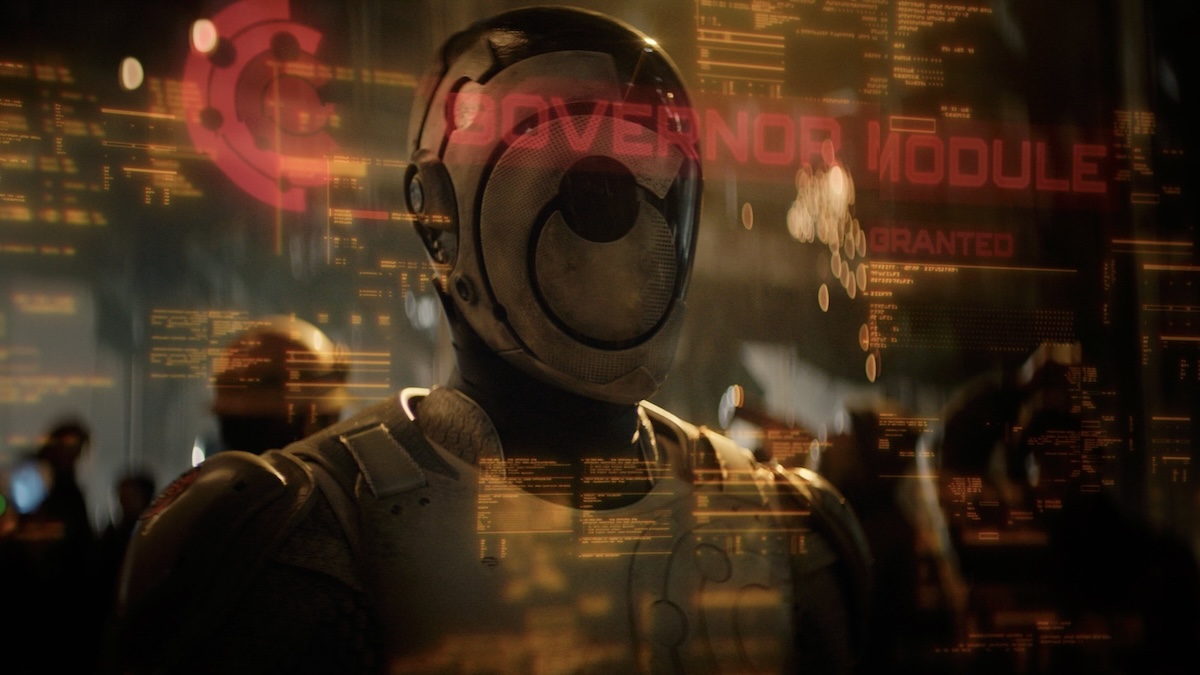
Given their backgrounds, this shouldn’t come as a surprise. Skarsgård, hailing from a Swedish acting family, brings a consistent and compelling presence that never falters across the series’ 10 episodes. Skarsgård is known for his role as Eric Northman in True Blood (2008-2014)—where he played a Viking-prince-turned-vampire who spent a millennium avenging his family and then fell for a half-fairy, half-human in modern times—and it clearly served him well for this performance. The actor has a cold, intense stare that makes his character unreadable but mysterious, although Murderbot’s internal monologue, which Skarsgård delivers in a monotone voice, allows us a glimpse into a more satirical side. Though outwardly authoritative and intense, Murderbot actually ridicules his clients with one-liners and scheming excuses to ditch them so he can do what he really wants: watch his favourite soap operas in lieu of performing his duties.
As Murderbot reveals in episode 1, he’s downloaded and watched around 7,532 hours of content, but his interest gravitates towards The Rise and Fall of Sanctuary Moon, a Star Trek (1966-69) parody that’s never meant to be taken seriously. Yet Murderbot steals dialogue from the series-within-a-series to emotionally connect to his clients. This fictional soap opera, starring John Cho and Clark Gregg, becomes a key narrative device that helps Murderbot shift from being misanthropic to more empathetic about his clients. More broadly, this reflects the zeitgeist, perhaps offering familiar critiques about today’s generation: that they’re all soft and plaintive, media-obsessed and intensely focused on progress rather than productivity. This would explain Murderbot’s awkwardness in social situations, hinting at the artificiality of modern communication when technology acts as a direct mediator.
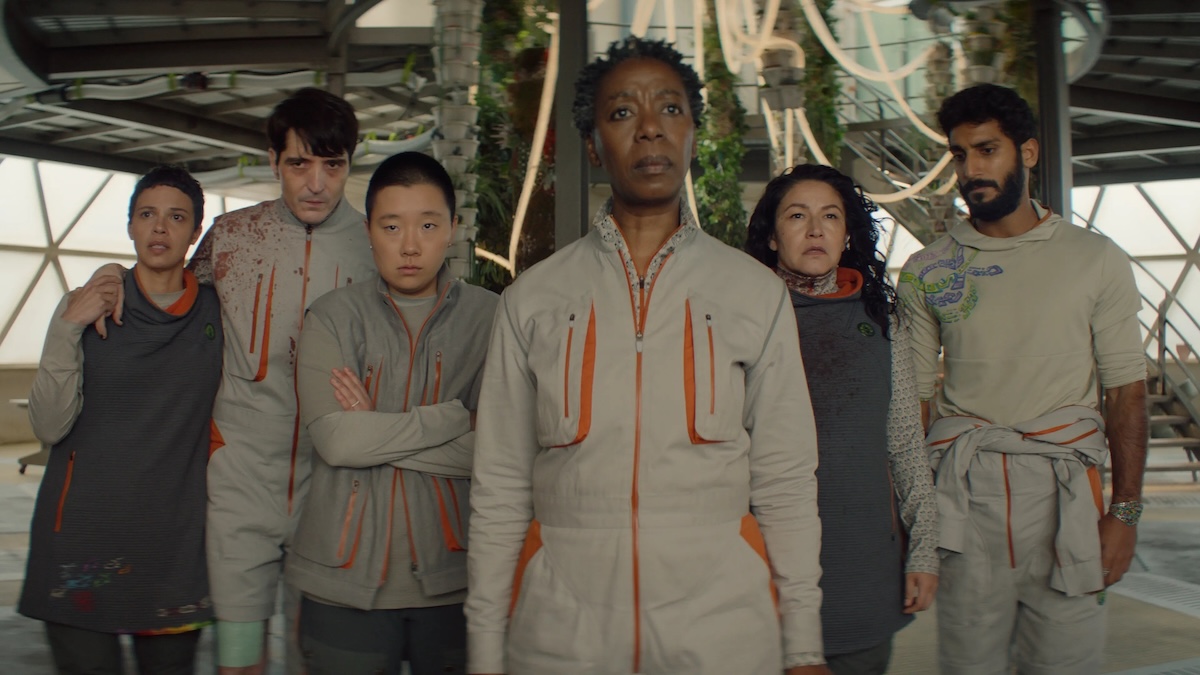
For Noma Dumezweni, the story is much the same. Drawing on her experience playing scene-stealing characters in thrillers like The Undoing (2020) and The Watcher (2022)—the latter produced by American Horror Story creator Ryan Murphy—she brings depth and believability to Dr Mensah. Like Skarsgård, Dumezweni understands what viewers need from her character. At times, we want her to be a sincere, capable team leader; at others, we want well-timed one-liners or subtle facial reactions to Murderbot’s comically unhinged behaviour, which blend surprise, confusion, and disbelief. She nails pretty much every time.
Not far behind is David Dastmalchian as Gurathin, an augmented human and tech expert who clashes with Murderbot every opportunity he gets. Every single expression conveyed expresses deep discomfort or maybe a shared misanthropy with our protagonist. However, it’s only when Gurathin catches a glimpse of Dr Mensah that his disgruntled exterior softens into a flat but gentle half-smile, giving viewers a necessary hint beneath the surface to understand his true motivations. As he explains to Murderbot, he worries that Murderbot will betray and kill his friends.
While characters Pin-Lee (Sabrina Wu), Ratthi (Akshay Khanna), and Arada (Tattiawna Jones) are positioned as egalitarian team members whose expertise feels more focused on navigating an awkward—and less humorous—throuple dynamic than advancing the mission, Bharadwaj (Tamara Podemski) stands out as a little more grounded presence for the rest of the group. However, nothing’s more satisfying than watching Murderbot best Gurathin in verbal bouts, shutting him down with dry humour as Gurathin hunts for clues suggesting that Murderbot isn’t under their control anymore. Skarsgård’s portrayal balances intensity and awkward comedic timing, making Murderbot intimidating, misanthropic and strangely endearing. We can sense that beneath the monotone and misanthropy lies something undeniably human: a desire for freedom in a world that insists he was built to serve.
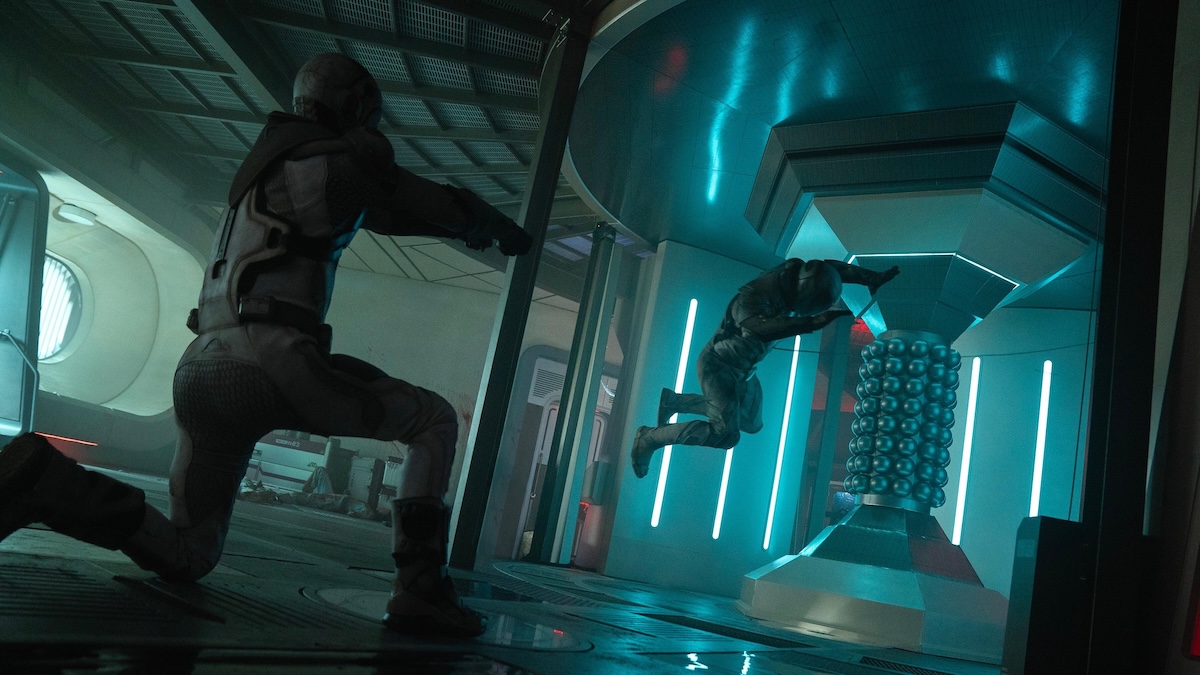
However, although the series teases an arc for Murderbot chasing connection and belonging, viewers may find the season finale underwhelming. In the final episode, the tone shifts from comedic to dramatic, and some may find this tender. While this character arc isn’t entirely novel—there’s an increasing demand for portraying complex protagonists with darker psychological edges, from You (20182-25) to Sweetpea—it’s likely to resonate, especially with viewers who are drawn to existential stories of identity, alienation, and the endless search for meaning in an absurd world.
Murderbot also draws similarities to Raised by Wolves (2020)—a sci-fi drama created by Aaron Guzikowski and produced by Ridley Scott, in which two androids raise human children on a distant planet after Earth’s destruction. In many ways, Murderbot feels like a more satirical cousin to Raised by Wolves. However, each episode of Murderbot runs just 22 minutes on average—less than half the length of the former series—which probably leaves many viewers feeling short-changed. Just as the story begins to settle in, the episode ends, sometimes abruptly. But for those living in today’s fast-paced, media-obsessed landscape, this kind of brevity might be a benefit rather than a detriment.
USA | 2025| 10 EPISODES | 2.35:1 | COLOUR | ENGLISH

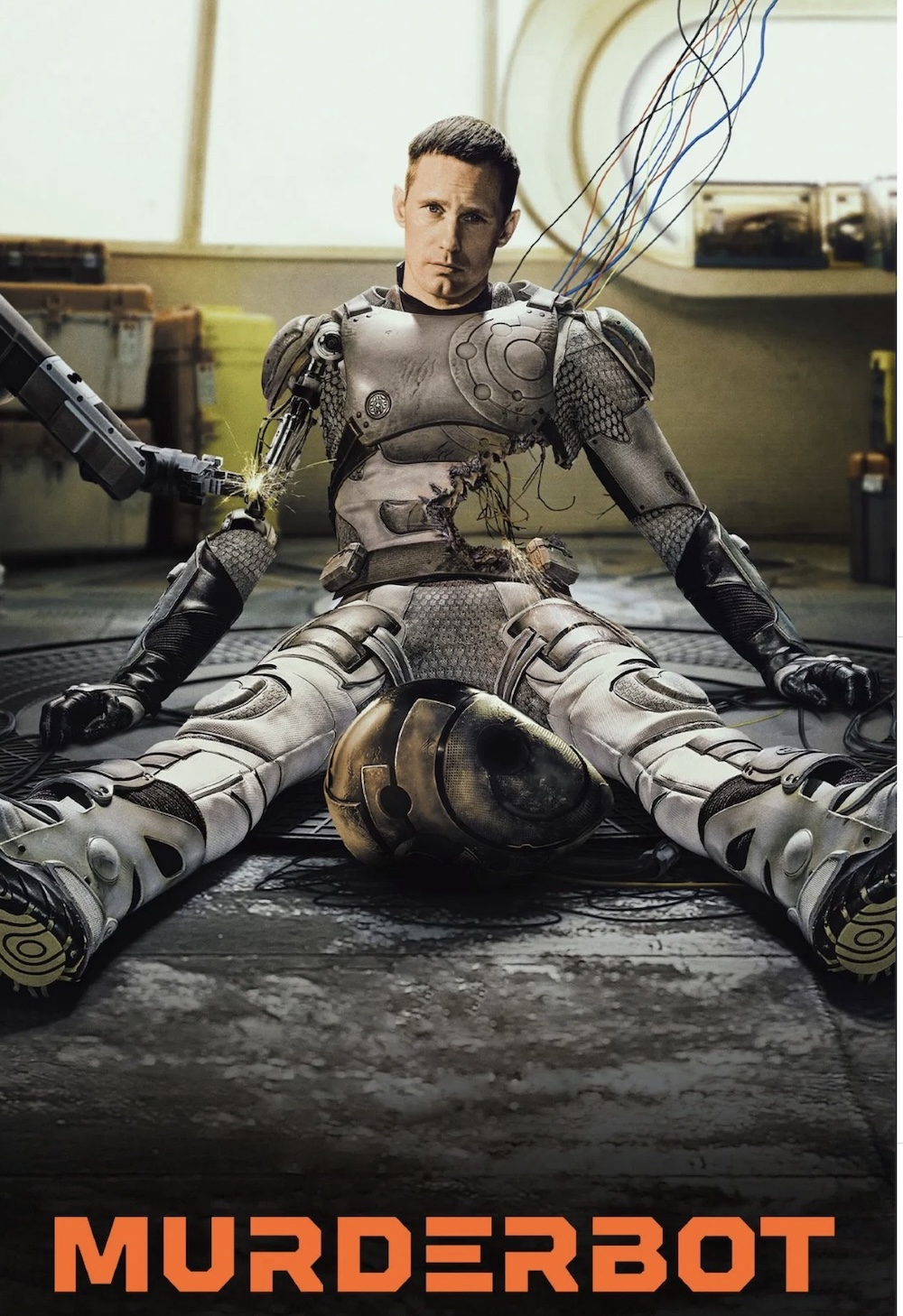
writers: Chris Weitz & Paul Weitz.
directors: Chris Weitz, Paul Weitz, Toa Fraser, Aurora Guerrero & Roseanne Liang.
starring: Alexander Skarsgård, Noma Dumezweni, David Dastmalchian, Sabrina Wu, Akshay Khanna, Tamara Podemski & Tattiawna Jones.
